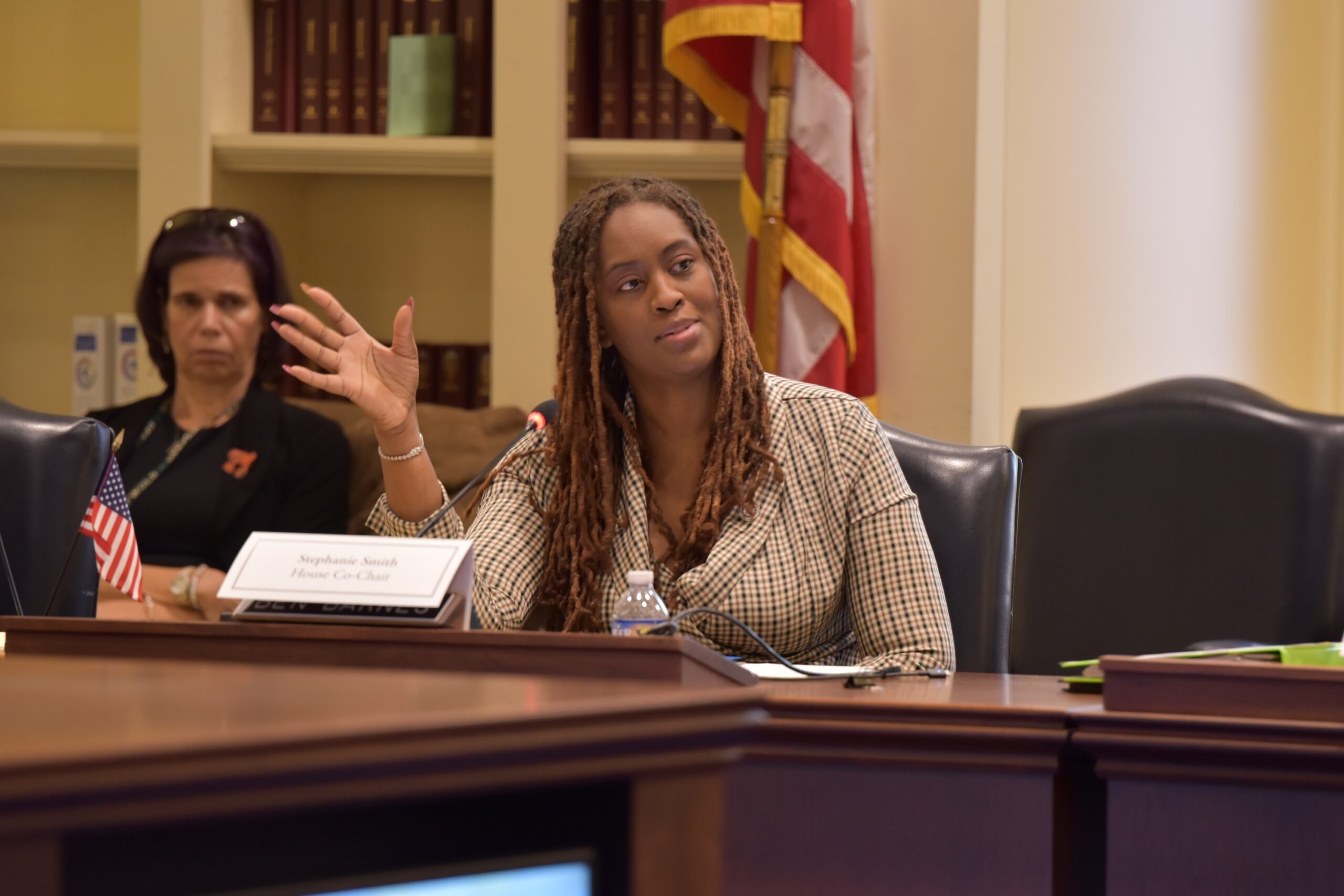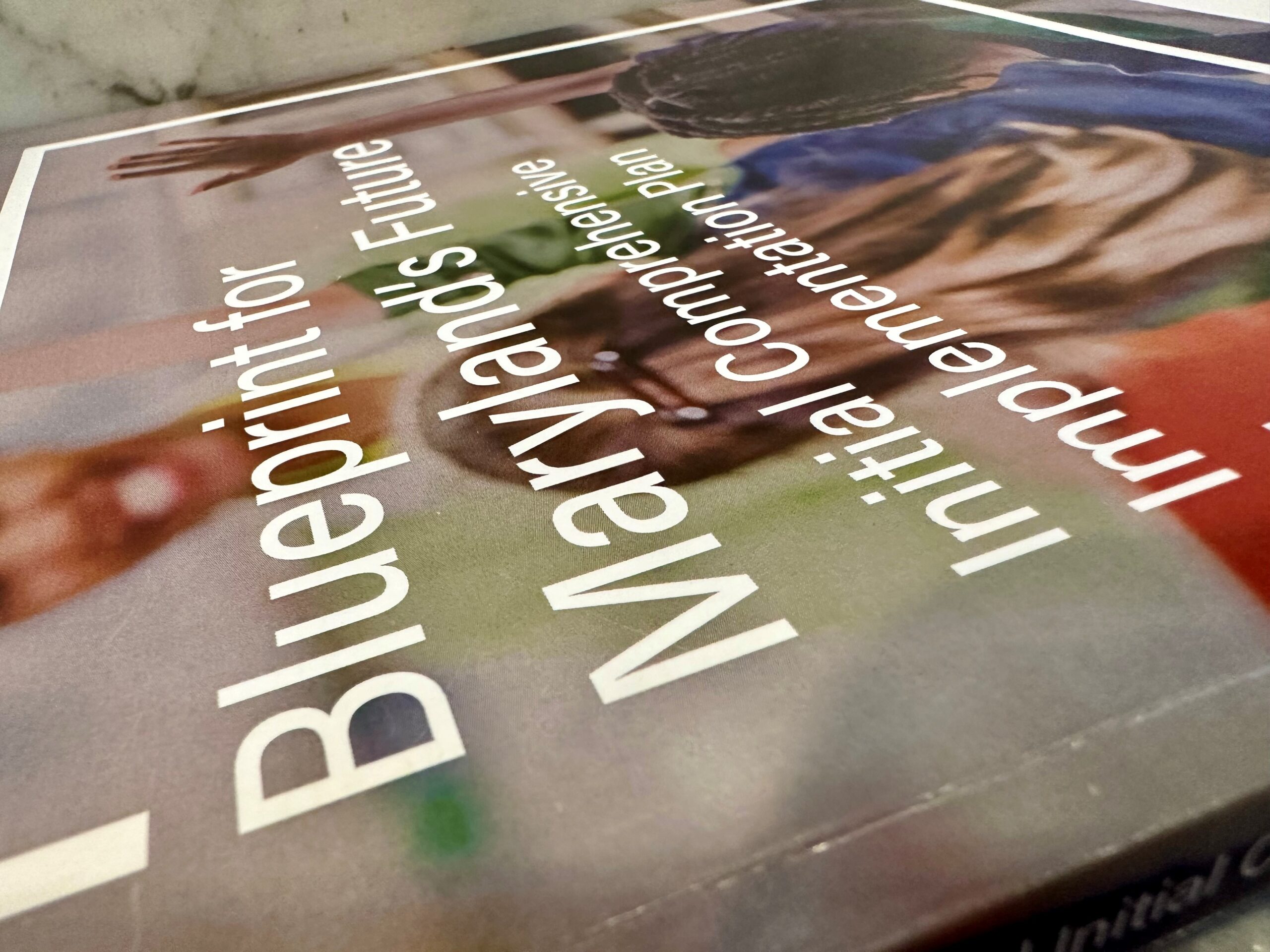Work group considers recommendations to improve academic program approval process

A legislative work group created to assess Maryland Higher Education Commission policies for approving academic programs discussed nearly two dozen possible recommendations Tuesday, and plans to approve a report of findings and recommendations early next month.
The Program Approval Process Workgroup was originally tasked to produce a report by Dec. 1, but the group’s co-chair Sen. Nancy King (D-Montgomery) said in an interview last month more time was needed.
The group, which held its fourth meeting Tuesday in Annapolis, was formed by the General Assembly this year before the MHEC board of commissioners’ controversial decision in June to allow a new business analytics degree program at Towson University over the objection of officials at Morgan State University, a historically Black campus five miles away, who argued it would duplicate a similar program there.
In July, an advice letter from the Office of the Attorney General stated the commissioners 4-3 vote “was of no effect” because a majority of the board members, and there were twelve members at the time, were needed to vote in favor or against the proposal.
Slightly more than a week later, Towson withdrew its request.
One recommendation suggested Tuesday is that commission members “conduct all discussions, deliberations, and votes of an appeal of a program approval decision in public session.”
Previous decisions dating back to 2018 did not report the actual vote.
Cassie Motz, who convened her first meeting as commission chair in August, promised more transparency.
In September, two decision letters noted that the majority of commissioners present voted against two physical therapy doctoral proposals from Johns Hopkins and Stevenson universities. The letters also state which commissioners voted in favor, against, or abstained.
Del. Stephanie Smith (D-Baltimore), who co-chairs the work group, said the status quo in the approval process wasn’t working.
“The problem is the resource disparity between the schools is what continues to field the mistrust and anxiety and the tension because we know they’re not aligned,” she said in an interview after the commission meeting. “Transparency, hopefully will bring people together to get these types of objections from even happening in the first place.”
One suggestion offered to build some trust is for the General Assembly to create a “collaborative fund” for higher education institutions to tap when establishing new graduate degree programs. This would be done on a case-by-case basis and MHEC should allow institutions to define what those projects would be.
Examples of how the fund could be used include transportation costs for students to travel from one campus to another, student exchange programs, or “joint marketing or recruitment,” according to a memo from the work group.
Other recommendations
The work group is considering recommending that the General Assembly add an advisory committee within MHEC to make recommendations when reviewing and approving new academic programs.
That suggestion was offered in October by Maryland HBCU Advocates, comprised of alumni and supporters from the state’s four historically Black colleges and universities.
The advocates also requested that the commission update its guidance on program duplication.
A commission staff memo notes that although considering whether a proposed academic program would cause “demonstrable harm” to, or would be “unreasonably duplicative” of a program at another institution are parts of the analysis when deciding to approve or disapprove a program, the memo later states, “At most, the factors are described as ‘considerations’ of the Secretary in regulation causing confusion about whether a specific factor or consideration receives more weight than another factor or consideration.” Further, the memo states that these and other standards “are not in regulation. Without adoption through the formal regulatory process, the program approval process appears to lack uniformity, consistency, and transparency in implementation.”
The work group is requesting that MHEC adopt analyses to make the distinction between unreasonable and unnecessary duplication.
Another possible recommendation focused on institutions’ mission statements, which summarize values or general objectives of colleges and universities. After the commission approves a mission statement, it would submit a report to three legislative committees – House Appropriations, Senate Budget and Taxation and Senate Education, Energy and Environment – “to ensure that the State is supporting each institution in meeting the needs of their approved mission statement.”
King asked Tuajuanda C. Jordan, president of St. Mary’s College of Maryland and a member of the work group, if it’s possible for every school to be “on the same playing field?”
“That’s the ideal, but the reality is that we aren’t,” Jordan said.
Before a final report is completed, the work group will hold a virtual public hearing Dec. 20, at 4 p.m.




 Creative Commons Attribution
Creative Commons Attribution